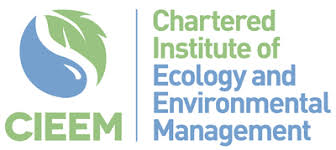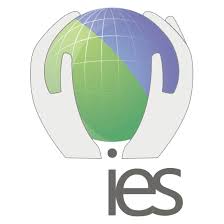ENVIRONMENTAL POLICY FORUM
PRESS RELEASE
EMBARGO 00:01 Wednesday 7TH March 2018
Remain within REACH, says Environmental Policy Forum
The effective regulation of chemicals is critical for the economy, public health, environmental protection, the economy and animal welfare and ending the UK’s involvement in the EU chemical framework REACH (Registration, Evaluation, Authorisation and Restriction of Chemicals) could have serious consequences. This is the message from members1 of the Environmental Policy Forum (EPF), a network of UK environmental professional bodies, to parliamentarians today as chemical regulation in the context of Brexit is due to be discussed in the Lords.
The EPF has written to a number of peers expressing concerns about the future regulation of chemicals in the UK post-Brexit and recommending strongly that the UK remains in REACH rather than trying to create a parallel and potentially expensive and inefficient UK system. Following the Prime Minister’s speech on Friday 2nd March, which recognised the need for the UK to remain part of the European Chemicals Agency, the EPF is calling upon peers to secure binding commitment from the Government on this as they discuss chemicals and chemical regulation in today’s debate.
REACH, adopted in 2007, is a world-leading framework designed to provide a high level of protection of human health and the environment from the use of chemicals and to make those who place chemicals on the market responsible for understanding and managing the risks associated with their use. It also seeks to minimise the levels of animal testing required and enhance innovation in and the competitiveness of the EU (and hence the UK’s) chemicals industry.
The letter states:
“Globally, the best regulatory regime is currently the EU REACH regime, of which until it leaves the EU, the UK is an integral and influential part. Whilst we welcome the Government’s stated intention to seek a comparable level of protection after Brexit, as a group of leading environmental experts we are concerned that this is not achievable unless the UK’s continued participation in REACH is agreed.”
“A separate system without access to the existing database of chemical safety information would be very expensive to establish and operate, both for Government and for the UK chemical industry. Not only would the need to generate repeat safety information be expensive, it could also require significant duplication of animal testing, with the associated impact on animal welfare. The UK would also lose access to the combined scientific expertise in the EU Member States, as well as losing influence on future scientific and policy development in this area.”
Other risks associated with leaving REACH include the potential for future divergence in approach on specific chemicals between the EU and the UK, which could lead to a number of unwelcome outcomes including barriers to trade for the UK’s multi-billion-pound chemical and pharmaceutical industry and other industries that use chemicals in their products and processes. Delays and blockages in cross-border supply chains could also impact on UK industry and there is the further risk of the continued use or sale in the UK – permanently or for a limited time – of chemicals deemed too dangerous in the EU.
Professor Will Pope, Chair of the EPF, says:
“The importance of remaining in REACH is not just a UK/EU issue; across the world, manufacturers exporting into the EU are bound by REACH – it has become a global standard setter. It also ensures the safe management of these chemicals when products and materials are recycled or disposed of at end-of-life. Remaining in REACH is, therefore, critical for future UK trade and for the protection of the UK economy, our public health, the environment and animal welfare.”
1 Signatories to the letter are:
Chartered Institution of Wastes Management

Chartered Institute of Ecology and Environmental Management

Chartered Institution of Water and Environmenal Management

IEMA

Institution of Environmental Sciences

Institute of Fisheries Management

Landscape Institute

Society for the Environment

and, supporting the EPF, the Institution of Chemical Engineers

Press contacts:
Pat Jennings, Head of Policy & Communications, CIWM
Tel: 01604 620426
Email: pat.jennings@ciwm.co.uk
Notes to Editors:
- The Environmental Policy Forum (EPF) is a network of UK environmental professional bodies promoting environmental sustainability and resilience for the public benefit. The EPF’s member bodies have a collective membership of around 70,000 environmental professionals, many of whom are individually chartered in environmental practice, science and engineering disciplines. www.socenv.org.uk/EPF
- CIWM (the Chartered Institution of Wastes Management) is the leading professional body for the waste management sector representing around 6,000 individuals in the UK. Established in 1898, CIWM is a non-profit making organisation, dedicated to the promotion of professional competence amongst waste managers. CIWM seeks to raise standards for those working in and with the sector by producing best practice guidance, developing educational and training initiatives, and providing information on key waste-related issues. www.ciwm.co.uk
- The Chartered Institute of Ecology and Environmental Management (CIEEM) is the leading professional membership body representing and supporting 5,000 ecologists and environmental managers in the UK, Ireland and abroad. Our Vision is of a society which values the natural environment and recognises the contribution of professional ecologists and environmental managers to its conservation. www.cieem.net
- CIWEM (the Chartered Institution of Water and Environmental Management), is the leading independent Chartered professional body for water and environment professionals, promoting excellence within the sector. www.ciwem.org
- IEMA is the membership body for more than 14,000 environment and sustainability professionals worldwide. We support individuals and organisations in setting and achieving globally recognised standards for sustainable practice, in turn driving the development and uptake of sustainability skills. We add value for our members by providing the knowledge, connections and recognition necessary to lead change within organisations at all levels. We are independent and international. We apply the combined expertise of our members to provide evidence and influence decision-making, working towards our vision of transforming the world to sustainability. www.iema.net
- The Institution of Environmental Sciences (IES) is a membership organisation that represents professionals from fields as diverse as air quality, land contamination and education - wherever you find environmental work underpinned by science. A visionary organisation leading debate, dissemination and promotion of environmental science and sustainability, the IES promotes an evidence-based approach to decision and policy making. www.the-ies.org
- The Institute of Fisheries Management (IFM) is an international organisation of people sharing a common interest in the modern management of recreational and commercial fisheries. www.ifm.org.uk
- The Landscape Institute (LI) is the chartered body for the landscape profession. It is an educational charity working to promote the art and science of landscape practice. The LI’s aim, through the work of its members, is to protect, conserve and enhance the natural and built environment for the public benefit. The Landscape Institute provides a professional home for all landscape practitioners including landscape scientists, landscape planners, landscape architects, landscape managers and urban designers. www.landscapeinstitute.org
- The Society for the Environment is comprised of 24 Licenced Bodies, with over 500,000 members between them. It received a Royal Charter in 2004, which empowers it to regulate the Chartered Environmentalist (CEnv) and Registered Environmental Technician (REnvTech) registration in the UK. There are now over 7,000 environmental professionals currently registered who share a common vision of delivering sustainability through environmental professionalism. www.socenv.org.uk
With an international membership exceeding 40,000 in around 100 countries, the Institution of Chemical Engineers (IChemE) aims to be the organisation of choice for chemical engineers. It promotes competence and a commitment to best practice, advances the discipline for the benefit of society and supports the professional development of its members. IChemE is a Licenced Body of the Society for the Environment; it is not a member of the EPF but it is supporting the EPF on this important and relevant issue. www.icheme.org